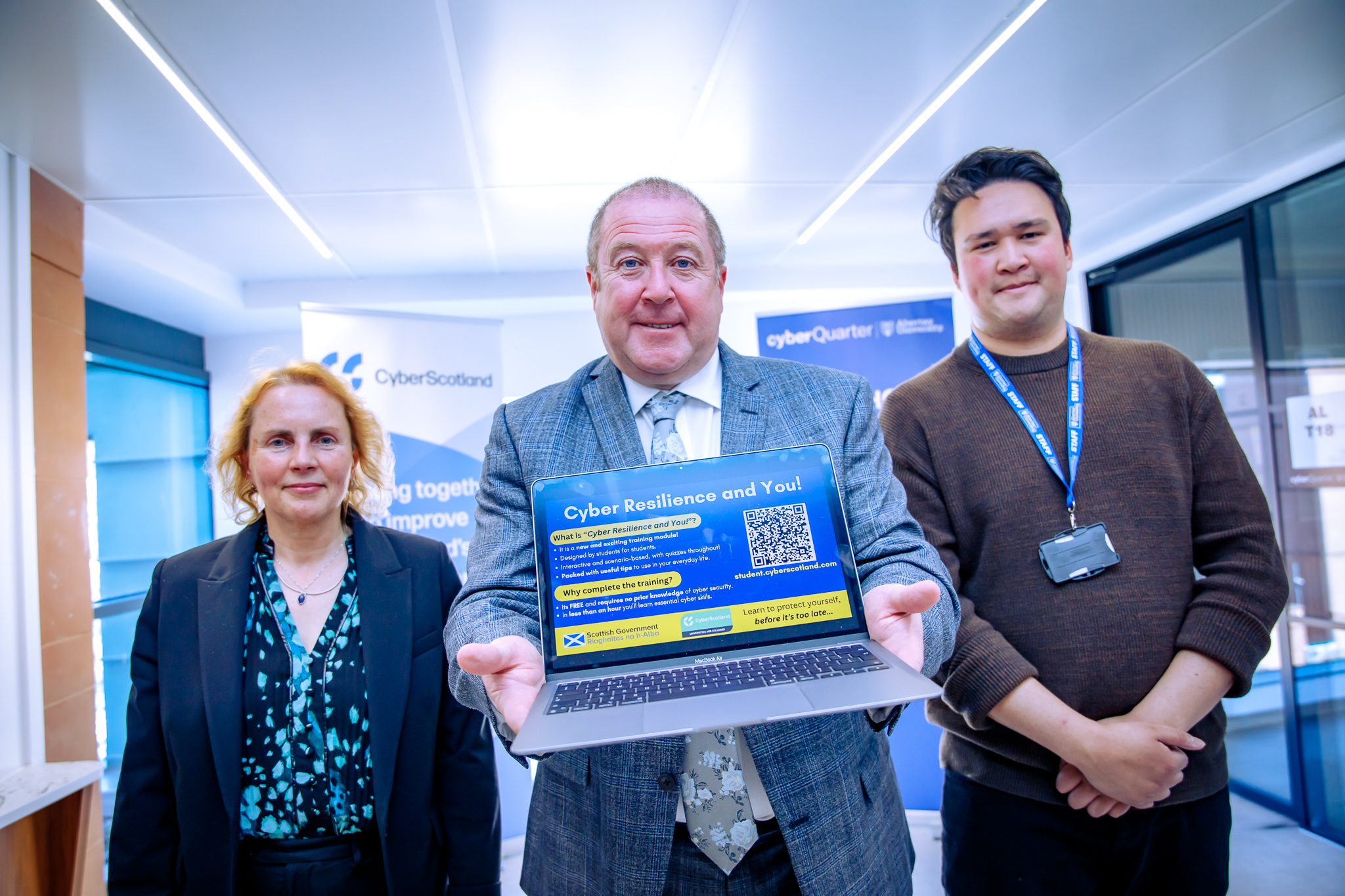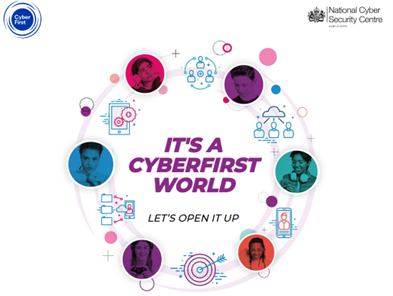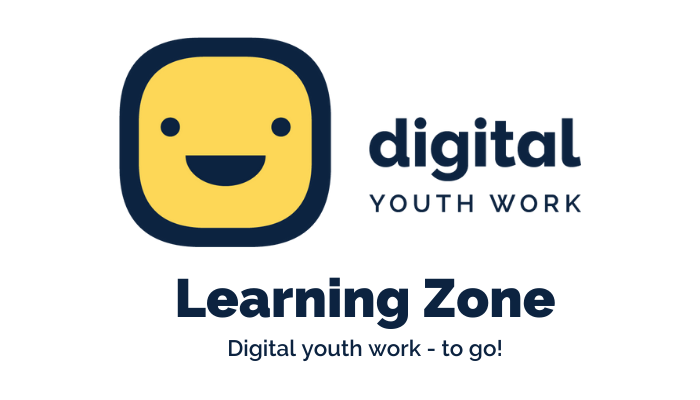CATEGORIES
Education Bulletins UpdatesWelcome to the Autumn 2025 edition of the Cyber Resilience Learning and Skills Bulletin!
Now that our schools, colleges and universities are back after the summer break, we have another packed edition dedicated to cyber-related education, skills and training, including articles on the exciting new Digital Learning Initiative launched this week, the forthcoming National Youth Work Conference and the CyberFirst Bursary Scheme to name but a few!
It is important that we all continue to build Scotland’s cyber resilience and we are grateful that you continue to support this by engaging with your networks and communities. Below are highlights of current stakeholder and partner initiatives.
Schools
CyberFirst Girls Competition
Get ready – this year’s CyberFirst Girls’ Competition kicks off soon!
Delivered by the National Cyber Security Centre (NCSC) in collaboration with IBM, the competition aims to inspire girls interested in technology to pursue a career in cyber security.
Registration is due to open shortly and the competition runs in late November. Check the website or sign up for email updates so you don’t miss a thing!


Degree Apprenticeships in Technology and Operations hosted by Tech She Can
A series of workshops and activities, designed to explore future careers in technology and operations, are being delivered by Tech She Can in partnership with Barclays.
Tech She Can is a charity on a mission to inspire young people, especially girls, to pursue technology careers, by working with schools, parents, and industry partners to ensure the next generation has the skills and confidence to thrive in a digital world.
Join the webinar between 5.00pm and 6.00pm on Wednesday, 8th October to ask questions, build confidence and acquire interview skills and techniques.
Colleges and Universities
Cyber Resilience and You!
The start of a new academic year is the perfect time to complete ‘Cyber Resilience and You! ’, the free 1-hour cyber resilience learning package for all students at Scotland’s colleges and universities.
The new resource – launched in May by Graeme Dey MSP, Minister for Higher and Further Education – was developed in partnership with Scottish colleges and universities and teaches students how to tackle cyber threats relevant to student life, including the risks of using public Wi-Fi, how to identify scams, how to back up important data and so much more.
Colleges and universities are being encouraged to use this resource and support new and returning students at the beginning of the academic year. If you are part of a college or university and interested in encouraging more students to use the training, or if you just want some more information about it, then please reach out to m.kleinman@abertay.ac.uk


CyberFirst University Bursary Scheme
Good news – the National Cyber Security Centre (NCSC) bursary programme for 2025/26 is now open for applications.
The bursary offers £4,000 for each year of a degree, a paid summer work placement with top tech employers and real-world experience that will look great on any CV. Applications close on 17th November 2025 and more information can be found here.
Ada Scotland Festival
The Ada Scotland Festival returns for its sixth year from 29 September – 10 October, with a packed programme of events to inspire and support women and girls in computing, including the return of the Cyber Heist event, delivered in partnership with Morgan Stanley.
Open to all university and college students, Cyber Heist provides a unique opportunity to learn from industry experts and gain insights into the world of cybersecurity.
A full list of events can be found here.


University of Glasgow launches new Cyber Security Master’s Degree
This month, 20 students from across the world enrol on a new, specialist Cyber Security Master’s degree programme at the University of Glasgow’s School of Computing Science. The Cyber Security Master’s features hands-on learning with a dedicated Cyber lab, equipping students with skills including pen testing, cyber forensics and software development in Rust. The teaching builds on world-leading research hosted at the University of Glasgow, with a core team of academics led by Professor Shahid Raza. More information can be found here.
Business and other organisations
Introducing the Digital Learning Initiative
The Digital Learning Initiative goes live on 30th September.
For the first time in Scotland, the initiative brings together leading technology learning platform providers – including AWS, Cisco, IBM, Microsoft, and Salesforce – in partnership with Skills Development Scotland to provide a one-stop portal for free and accessible digital skills courses to help adults in Scotland upskill and reskill in digital technologies.
Courses are available in:
- Cyber Security
- Artificial Intelligence (AI)
- Software Development
- Data Science
For more information: https://myworldofwork.co.uk/digital-learning


Scottish Careers Week
Want to get involved in 2025? Mark your calendar for 10th to 14th November 2025 and start planning for #ScotCareersWeek25.
Whether you’re an educator, employer or career practitioner, you can get behind the campaign and help:
- raise awareness of career services available to everyone across Scotland.
- inspire people by showcasing careers in exciting industries.
More than 280 events helped shape the future, online and across Scotland, in 2024, with people of all ages able to explore exciting career opportunities and get support to help them succeed. Educators, employers and lots of fantastic organisations helped make it a success – from organising and attending career events to sharing inspiring information and launching new career resources.
National Youth Work Conference 2025
The National Youth Work Conference 2025 takes place in Glasgow on 27 October and this year’s theme is Safe Spaces, Strong Futures – Youth Work’s Role in Safeguarding Young People and Promoting Wellbeing. Online safety and security for young people is a prominent item on the agenda and keynote speakers include online safety specialist, Jess McBeath. Book your place here.


Cyber Focus for Digital Youth Work Learning Zone
Cyber resilience themes are a key focus on the Digital Youth Work Learning Zone, a collection of training resources curated to enable youth workers to support young people in their online lives. Find resources that help with building in cyber resilience to youth work as well as short engaging cyber resilience basics to help you get started.
Lead Scotland
Lead Scotland has released a blog series highlighting cyber risks. Although the blogs are written to be relevant and seasonal with summer in mind, the information and learning is relevant all year round.
The seasonal themes are:
• Timeshares and holiday club memberships (Investment Fraud)
• Social media adverts for fake holidays (Purchase Fraud)
• Emails pretending to be legitimate travel companies (Phishing Emails)
• Posting on social media when you’re away from home (Digital Footprint)
Each blog shares lessons specific to that topic, what to watch out for this summer, and top tips to staying safe online. It also links to the relevant resources on Lead Scotland’s e-learning platform as well as easy read guides and BSL videos for further learning.
You can read and share the blogs here: #SecureSummer – Introduction to staying safe online this summer and you can find them on social media for more #SecureSummer content.


Help Shape the Future of Advanced Digital Skills
Skills Development Scotland on behalf of the UK NOS (National Occupational Standards) Governance Group has commissioned ODAG Consultants to shape vocational standards across Scotland, Wales and Northern Ireland.
A consultation on four new sets of National Occupational Standards has been launched and employers and public bodies are invited to review and provide feedback on any NOS relevant to them or their organisation by 10th October 2025. The NOS are:
- OT Cybersecurity – Skills to protect industrial and safety-critical systems from cyber threats.
- Smart Infrastructure – Competencies to design, deliver, maintain, and optimise smart, digitally connected infrastructure.
- Blockchain – Skills to design, secure, and integrate blockchain systems, from smart contracts to enterprise applications.
- Full Stack Software Development – Skills to build and maintain end-to-end software solutions across front-end, back-end, cloud, and security.
For any questions, please contact tonyvenus@ODAG-tech.co.uk
e-Placement Scotland
e-Placement Scotland is the student placement programme from ScotlandIS and Edinburgh Napier University and they are looking for employers requiring Cyber Security student placements during 2025/2026.
So if you would like to boost your business, access new talent, and simplify your recruitment, e-Placement Scotland can help.
- The programme is employer-led and completely flexible, so placements can be any length, both full and part time.
- It is a completely free service to advertise your role and match your candidate, but students must be paid a salary of at least the minimum living wage.
- The employer feedback has been that the students are extremely capable, talented, highly skilled, and excellent value for money.
e-Placement Scotland work with all the universities and colleges in Scotland to bring the widest range of students available who study technical disciplines – anything from computer science and software development to electronics engineering, data science, and digital marketing, and everything else in between.
For more information, please check out Welcome to e-Placement Scotland or contact Fiona Thomson on fiona.thomson@scotlandis.com.


Education Scotland announces new Interim Chief Executive
Education Scotland has welcomed Graeme Logan as its Interim Chief Executive. With a wealth of experience in educational leadership and advisory roles, Graeme will lead the organisation through this important transition period while continuing to drive its mission forward.
No more passwords
Tired of remembering passwords? There’s a better way — it’s called a passkey 🔐
In this 5-minute tutorial, Daniel from Digital Skills Education will show you how to use a passkey to log into your accounts using your fingerprint, face, or a PIN.
He’ll explain:
- What passkeys are and how they work.
- Why they’re safer than passwords.
- How to set one up on your computer or phone.
This video is part of their Safe For Work playlist.

Remember, to report an email phishing attempt forward your email to the National Cyber Security Centre: report@phishing.gov.uk
If you are a victim of cyber crime, please report it to Police Scotland by calling 101.

